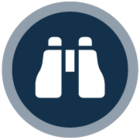How many of you guys use a pricing structure to generate quotes?
At the moment I kind of pull a number out of my butt and see if it sticks. It’s an educated guess of the high end of the range I think I can get without too much price pushback, but it delivers inconsistent results. I am working on a solid price structure that I use consistently, but I’m trying to make sure I cover my bases without being overly complex.
Pro’s and cons- Winging it lets me experiment with pricing on the fly based on the conversation I am having with the customer. Structured pricing would let me delegate the quoting function, or not have to put much mental energy into it (maybe AI can do it for me if I have the right guardrails…).
What do you guys think? If you were building a pricing structure for the first time (or again) what elements would you include in the structure?





